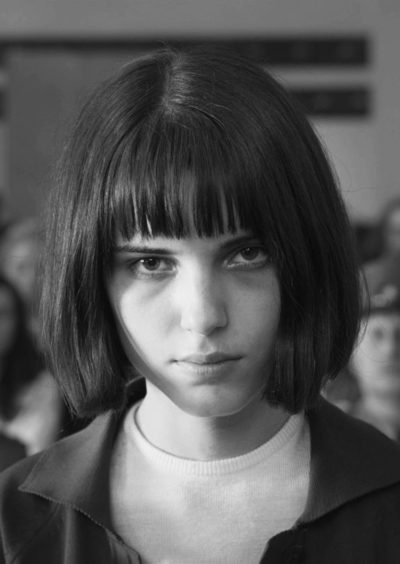★★★
“Czech, please…”
 I am a loner. A destroyed woman. A woman destroyed by people… I have a choice – to kill myself or to kill others. I choose TO PAY BACK MY HATERS. It would be too easy to leave this world as an unknown suicide victim. Society is too indifferent, rightly so. My verdict is: I, Olga Hepnarová, the victim of your bestiality, sentence you to death.
I am a loner. A destroyed woman. A woman destroyed by people… I have a choice – to kill myself or to kill others. I choose TO PAY BACK MY HATERS. It would be too easy to leave this world as an unknown suicide victim. Society is too indifferent, rightly so. My verdict is: I, Olga Hepnarová, the victim of your bestiality, sentence you to death.
Women who kill are rare. Women who kill multiple victims at once, without male associates, are rarer still. Among the few who have been recorded as such was Olga Hepnarová, a 22-year-old Czech, who in 1973 deliberately drove a truck into a group of people waiting for a tram in Prague. Eight were killed, and a dozen injured. The day before she had sent a “manifesto” explaining her actions to two local newspapers. As the extract above suggests, she saw herself as a victim, inflicting punishment on the society which she blamed for bullying her. Hepnarová showed absolutely no remorse, and became the last woman executed in Czechoslovakia, being hung in December 1975.
This is all historical and documented fact, but helps lend this feature version of Hepnarová’s life a bleak relentlessness. Presuming you’re aware of the story (and one imagines most of the Czech audience would be, if not necessarily those in other countries), you know exactly where it’s going to end up – with a short drop, though the film takes the specifics of that as read. So there’s no suspense to be had, and to be fair, that isn’t the point at all. It’s more about trying to get inside the mind of Hepnarová: how does someone get to the stage where committing an act of mass murder becomes not only plausible, it also becomes inevitable?
It was clearly a combination of factors. Olga displayed signs of mental illness from a young age, including a suicide attempt by overdose in her early teens, and as depicted here, has severe difficulty forming any kind of relationship – though the lack of effort she puts into them from her side is notable. She seems to stand outside the human race, at one point saying, “I can’t talk to anybody. I’m alone everywhere. People just talk and gather and laugh even at things I don’t find funny at all,” and later bluntly stating “The world has no value.” I’m not sure if her comments come from court transcripts, medical documents or were invented for the purpose of the film, but according to the makers, “We didn’t write anything that we didn’t know to be true – if we didn’t know it for sure, we removed it from our script.”
There’s no denying it sometimes packs a wallop – not least given events subsequent to filming, in Nice and elsewhere, with terrorists taking enthusiastically to vehicular mayhem for their own causes – and the blank nihilism in Olszanska‘s performance is chilling. But I can’t say any real insight into the psychology of her psychopathy feels like it was obtained. It’s clear she was bullied, and that was a factor, but what is offered feels like a facile simplification: hell, I had more than my share of being bullied at school, and didn’t kill anyone. There is eloquence to her own words, and I wish there had been more of this. For despite black-and-white cinematography which makes it feel like a contemporary retelling, rather than four decades later, the rest feels flat and largely uninteresting.
Dir: Petr Kazda and Tomás Weinreb
Star: Michalina Olszanska, Martin Pechlát, Klára Melísková, Marika Soposká




